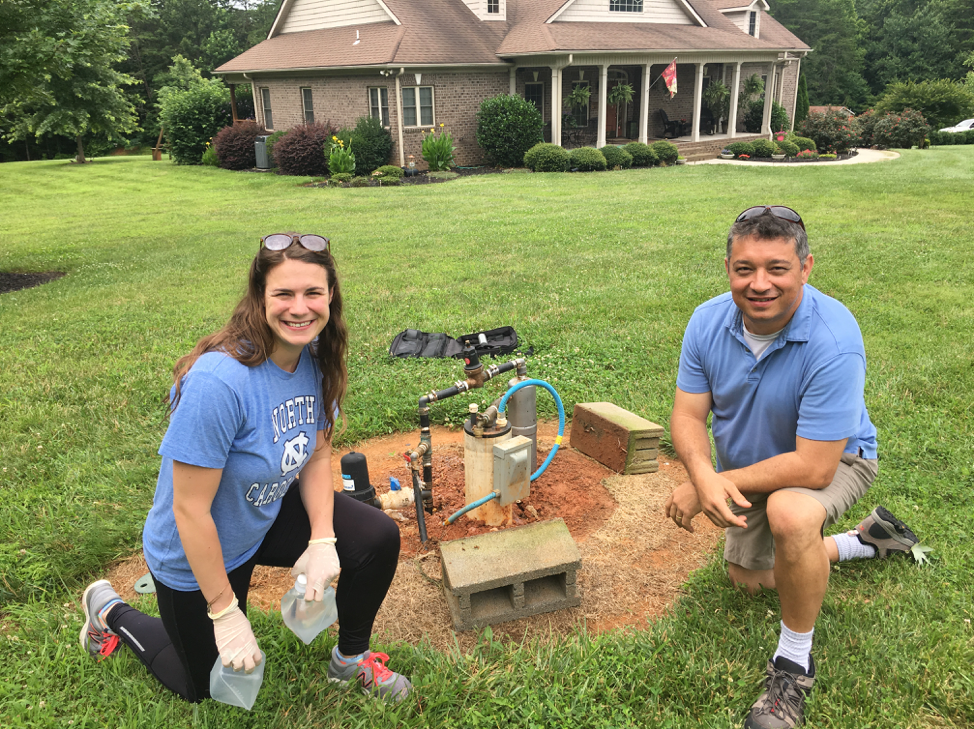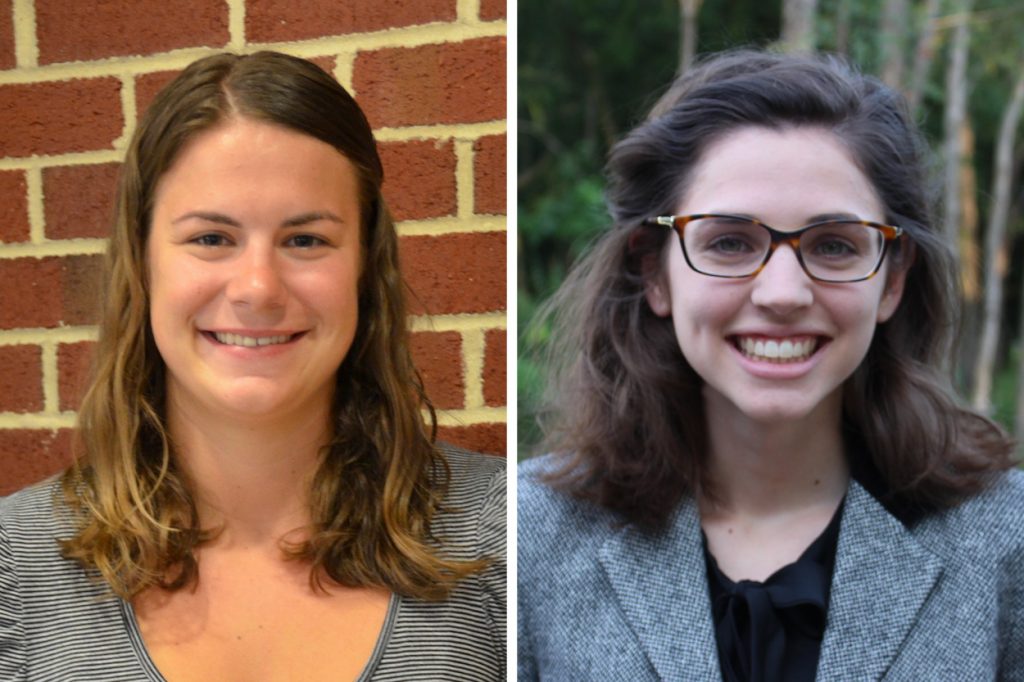By Martha Scott Tomlinson and Paige Bommarito
Martha Scott Tomlinson (left) is a doctoral student at the UNC-Chapel Hill Gillings School of Global Public Health.
Paige Bommarito (right) is a doctoral student at the UNC-Chapel Hill Gillings School of Global Public Health.
Well Empowered is a collaborative project between UNC faculty, students, and science education and community engagement staff, in partnership with local communities, to build capacity to prevent exposure to toxic metals in private wells.
In response to the Dan River coal ash spill in 2014, North Carolina mandated that all wells within a half mile of coal ash basins be tested for inorganic contaminants. These tests revealed that many wells had levels of toxic metals.
In response, community leaders contacted the UNC Superfund Research Program (SRP), led by Rebecca Fry, PhD, to help them understand their exposures and associated health risks.
Dr. Fry established an interdisciplinary team that included us, students from Dr. Fry’s lab, along with expertise from Duke University’s Avner Vengosh, PhD, and the UNC SRP Translation Core, led by Kathleen Gray, PhD. We worked alongside community groups, led by the non-profit Appalachian Voices, to develop a three-phase study.
Phase I: Survey
The SRP Research Translation Core developed a survey to assess existing community knowledge and beliefs related to well water quality. Over 130 local well owners in Stokes and Wayne counties took the survey. From their responses, we learned that a majority had not tested their wells.
Phase II: Testing water and soil for toxic metals
We selected households that participated in the Phase I survey to participate in environmental sampling of water and soil. We traveled to the participant’s homes to collect a first draw water sample, which was collected by the participants themselves, water samples from kitchen tap, and a water sample directly from the well head.

At the home visit, we also collected soil samples. The water samples were analyzed by the Biomarker and Mass Spectrometry Lab at UNC and the Environmental Stable Isotope Laboratory at Duke University. Soil samples were analyzed at the EPA National Exposure Research Laboratory.
Once the samples had been analyzed, informational packets were sent to each participant. Each packet contained:
- graphics comparing their individual household results to relevant federal or state guidelines;
- a table of complete results for each water and soil sample;
- information about any health risks related to exposures that exceeded federal or state guidelines; and
- an explanation of relevant federal or state guidelines.
In conjunction with the written results, we also made presentations at community meetings to give an overview of what we found and to clarify any of the results for participants.
Phase III: Solutions
We identified a pitcher filter that had been shown to effectively remove cadmium, arsenic, and lead from water in laboratory tests. The pitchers were distributed to households that exceeded the EPA’s maximum contaminant levels for arsenic or lead. We then tested their water pre- and post-filtration to verify that the filters were effective.
Final Thoughts
From Martha Scott Tomlinson
Working on this project was a great experience. We were able to interact with community members throughout the process, starting with development and continuing through offering solutions and a final presentation. This provided a different perspective and approach to science that was outside of the “academic bubble.” It was very satisfying to not only generate results for the communities but to take the time to explain them and offer a solution.
From Paige Bommarito
This project was a completely different experience with research compared to traditional laboratory research. I’m really proud of the work that this team did, particularly with respect to the reports we provided to participants. The UNC SRP Research Translation Core put together really thorough and accessible reports that went above and beyond what had previously been provided.
To learn more about the Well Empowered project please visit: https://sph.unc.edu/building-capacity-for-well-empowered-communities-preventing-exposure-to-toxic-metals-in-private-wells/


